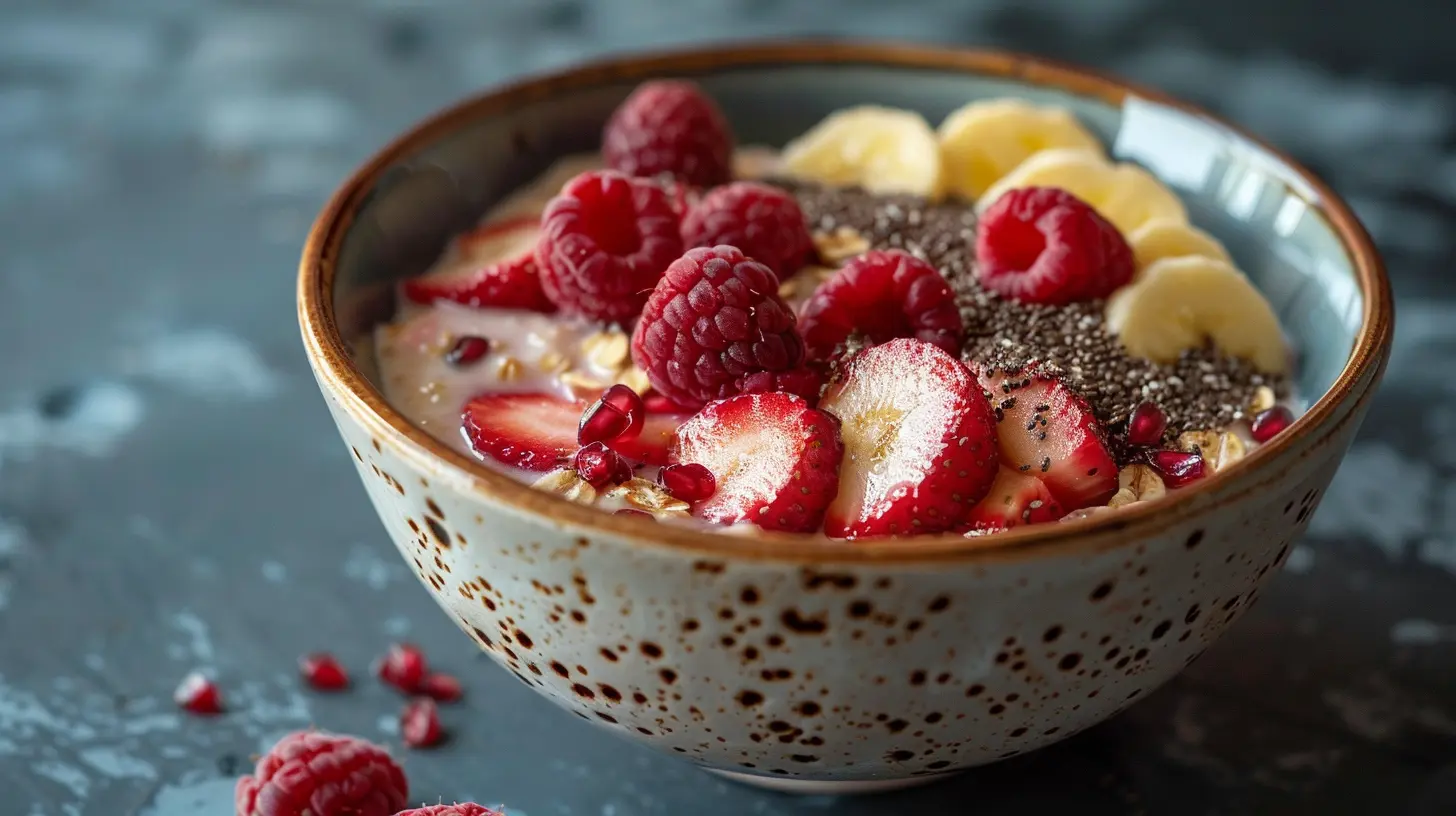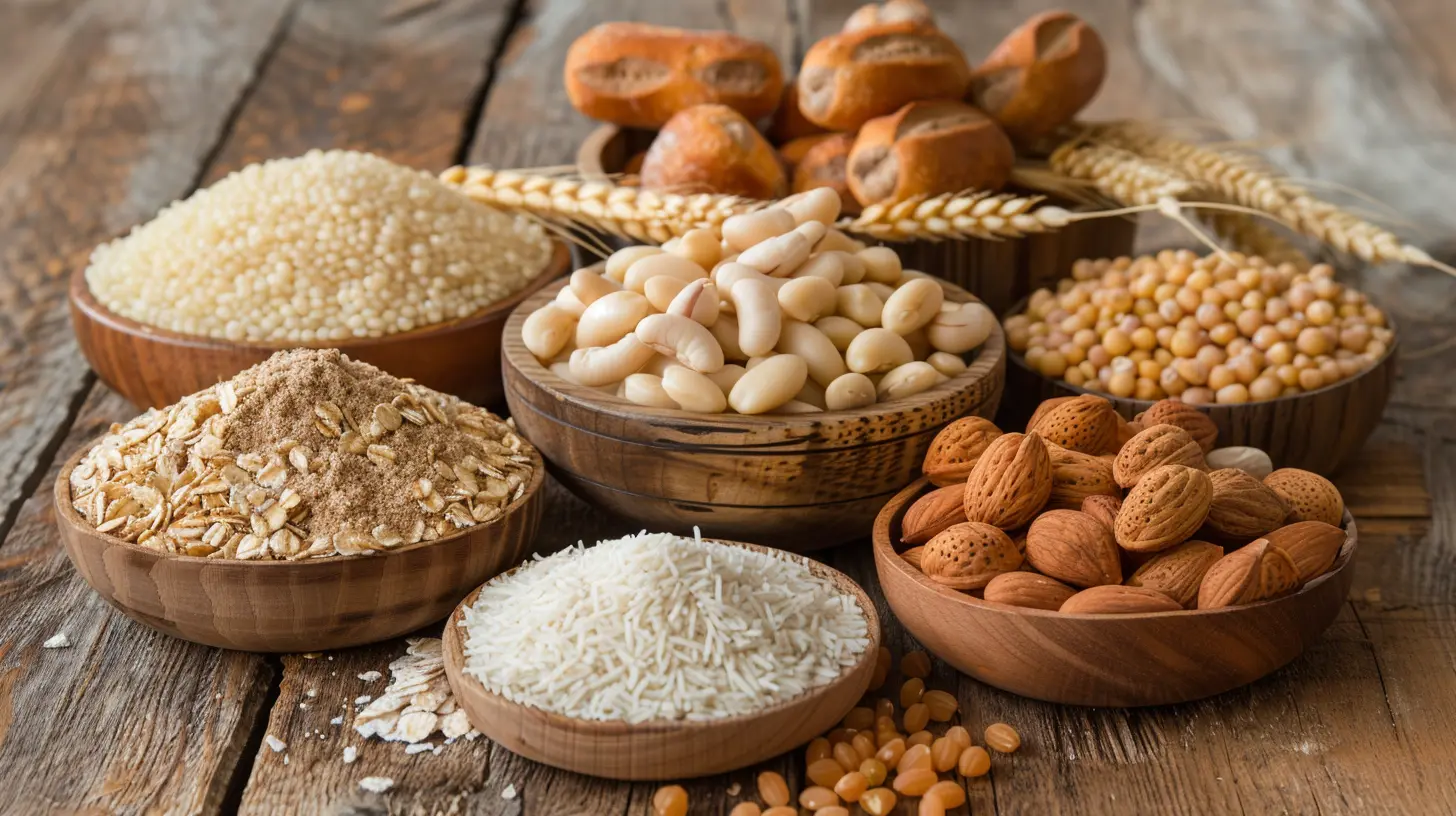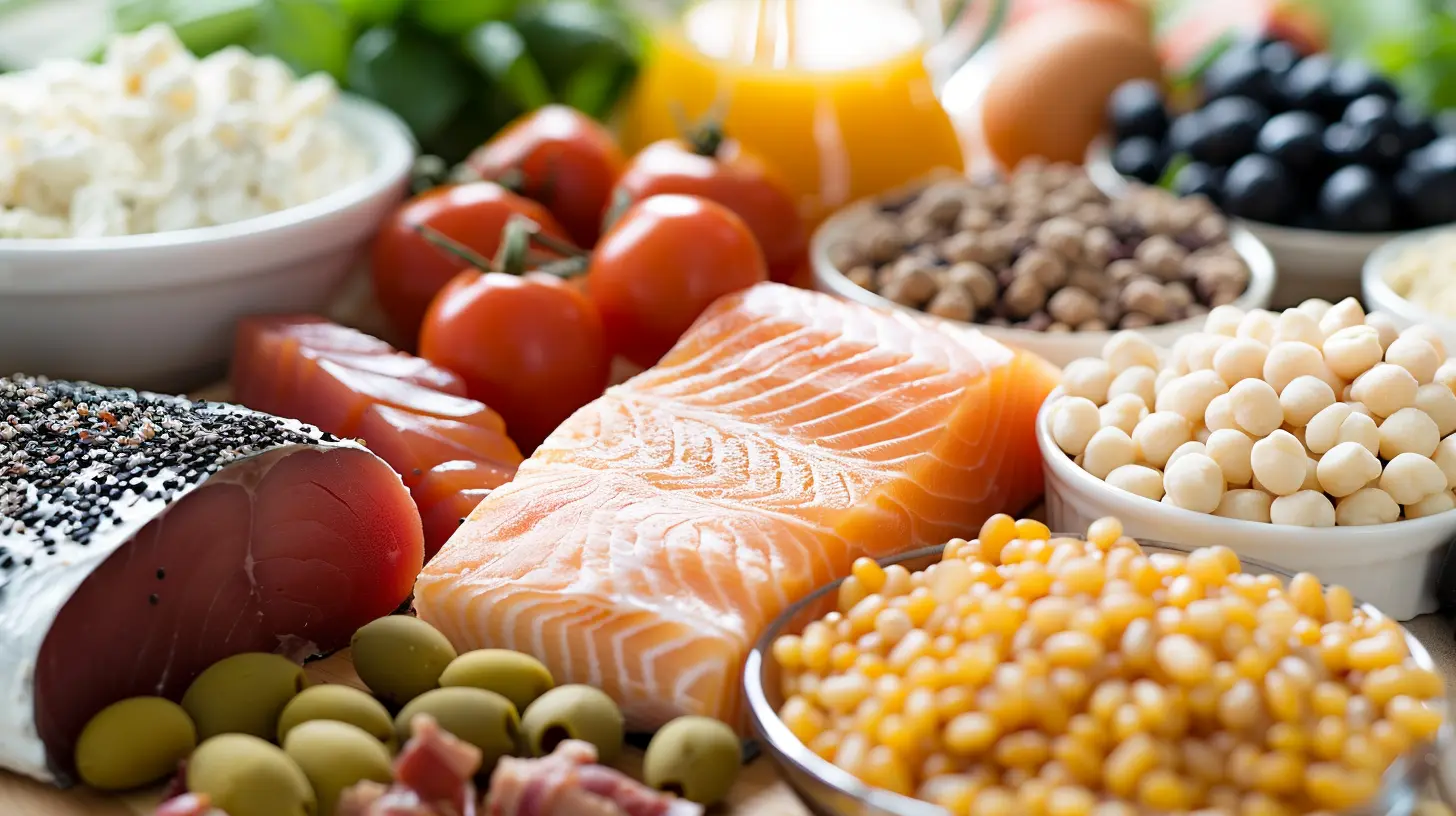The Importance of Carbohydrates in Muscle Recovery That You Haven't Heard of
18 August 2025
When it comes to fitness and muscle recovery, protein often steals the show. Everyone's talking about it—how much you need, which type is best, and when to consume it. But let’s hit pause for a moment. What if I told you that carbohydrates are just as crucial for muscle recovery? Yep, those macronutrients that sometimes get a bad rap in diet culture are secretly working overtime to help your muscles bounce back after a tough workout.
Sound surprising? Most people overlook carbs in their post-workout routine, but not you—not after reading this! Let’s break down everything you haven’t heard about the role of carbohydrates in muscle recovery and why your body craves them like a car craves fuel after a long road trip.
Why Are Carbohydrates So Important?
To understand the importance of carbohydrates, think of your body as a smartphone. The battery (your energy) drains as you go about your workout, and carbohydrates are like the charger you plug into after—bringing your energy back to 100%.Carbs are your body’s primary source of energy. When you work out, your muscles use glycogen, a stored form of glucose, as fuel. High-intensity exercise, like weightlifting or sprinting, depletes these glycogen stores fast. Enter carbohydrates—they help replenish those reserves so your muscles can recover, repair, and grow stronger.
But here's the kicker: it’s not just about energy. Carbohydrates also play a sneaky role in reducing muscle soreness, speeding up recovery time, and even aiding in protein absorption. Intrigued yet? Let’s dig deeper.
Post-Workout: The Critical Recovery Window
Ever heard of the “anabolic window”? It's that magical post-workout period, usually within 30 to 60 minutes after exercise, when your body is like a sponge, ready to soak up nutrients. This window is where carbohydrates shine.When you consume carbs after exercising, they trigger a release of insulin. Why does this matter? Insulin is an anabolic hormone that helps shuttle glucose into your muscles, refilling those glycogen tanks. But insulin also has a bonus job: it promotes protein synthesis. This is the process where your muscles repair and grow, making carbs the ultimate partner to protein in your recovery shake.
Imagine carbs and protein as the dynamic duo of muscle recovery—Batman and Robin. They work best together, each amplifying the other's benefits. Without carbs, protein can’t reach its full muscle-repairing potential. 
How Carbs Reduce Muscle Soreness
We’ve all been there—waking up the morning after leg day and feeling like you’ve aged 40 years overnight. That muscle soreness, called delayed onset muscle soreness (DOMS), is a result of tiny tears in your muscle fibers during exercise. While it’s a normal part of building stronger muscles, it’s not exactly fun.The good news? Carbs can help. When you replenish glycogen stores quickly, your body focuses less energy on finding fuel and more on repairing those micro-tears. Plus, carbs can lower levels of cortisol, the stress hormone that rises during intense workouts, which can exacerbate muscle inflammation. Less inflammation = less soreness. Didn’t see that coming, did you?
The Immune System Connection
Here’s another nugget you probably haven’t heard: Carbs also support your immune system. Intense exercise, especially for endurance athletes, can temporarily suppress your immunity. This makes you more susceptible to colds, infections, or that awful rundown feeling post-workout.Carbohydrates step in like your body’s defense team. Consuming them after exercise helps stabilize blood sugar levels and reduces the release of stress hormones. This provides your immune system with the extra resources it needs to stay strong. Think of it as giving your body a little extra padding against wear and tear.
Why Cutting Carbs Can Backfire
Okay, let’s address the elephant in the room—low-carb diets. While they’re popular for weight loss and other health benefits, they might not be doing your muscle recovery any favors. Cutting carbs too much can leave your glycogen stores perpetually depleted.What does that mean for your workouts? Less energy, slower recovery, and increased risk of overtraining. It’s like trying to drive a car on "E"—you’re not going to get very far. A low-carb diet might work for some people, but if optimal workout performance and recovery are your goals, carbs are non-negotiable.
What Types of Carbs Are Best for Recovery?
Not all carbs are created equal, especially when it comes to muscle recovery. You want carbs that your body can break down quickly and easily.- Fast-Digesting Carbs: Options like fruits, white rice, or even a plain bagel are excellent post-workout choices. They spike your blood sugar quickly, helping to replenish glycogen stores pronto.
- Complex Carbs: Foods like quinoa, sweet potatoes, and whole grains take a bit longer to digest but have their own role in longer-term recovery. Pair them with your next meal after your workout snack.
And yes, you’ve got some wiggle room here! Want to sneak in a little honey or jam on your toast? Go for it. Your body will thank you.
How Much Carbohydrate Do You Really Need?
So, how much is enough? The answer depends on what kind of workout you’re doing.For high-intensity or endurance exercises, aim for 1 to 1.5 grams of carbohydrates per kilogram of body weight immediately after your workout. For lighter activity, you might not need as much. The key is to listen to your body and experiment to find what works best for you.
And don’t overthink it! Pair your carbs with about 20-40 grams of protein for a well-rounded recovery meal. A classic example? A banana with a scoop of protein powder mixed into a shake. Simple, delicious, and effective.
Are You Timing Your Carbs Right?
Let’s talk timing. We’ve already mentioned the anabolic window, but here’s the thing—your body’s need for carbs doesn’t just end an hour after your workout. Maintaining a steady intake of carbohydrates throughout the day is essential for recovery, especially if you’re training multiple times a week.Think of it as charging your phone. You don’t just plug it in for 10 minutes and call it good, do you? The same logic applies to your glycogen stores. Fuel up consistently to keep your energy and recovery on point.
Carbs and Their Role in Long-Term Performance
Sure, carbs help with recovery, but they also set you up for long-term success. Studies show that athletes who prioritize carbohydrate intake recover faster and perform better in subsequent workouts. Why? Because their energy stores are consistently replenished, keeping them ready to crush their next training session.This kind of readiness isn’t just for elite athletes; it’s for anyone who wants to improve their fitness over time. Whether you’re training for a marathon or just trying to build muscle, carbs are an investment in your progress.
Debunking the "Carbs Make You Fat" Myth
Let’s clear the air about one of the biggest misconceptions out there: “Carbs make you gain weight.” They don’t—overeating does. Carbs aren’t the enemy, especially when you’re active. In fact, skimping on them can mess with your metabolism and lead to cravings that might have you reaching for unhealthy snacks later.Instead of demonizing carbs, focus on consuming the right kinds (natural, minimally processed) in the right amounts to fuel your workouts and recovery. Trust me, your body will love you for it.
Final Thoughts
Carbs might not have the spotlight like protein, but they’re the unsung heroes of muscle recovery. They replenish glycogen, reduce soreness, support your immune system, and even help protein do its job better. Whether you’re an athlete, a gym-goer, or just starting your fitness journey, don’t underestimate the power of those post-workout carbs.So next time you’re meal prepping or planning your post-workout snack, remember: carbs are your recovery MVP. Embrace them, enjoy them, and watch your performance—and recovery—improve.
all images in this post were generated using AI tools
Category:
Post Workout RecoveryAuthor:

Holly Ellison
Discussion
rate this article
1 comments
Zareth McHugh
Fuel your recovery; carbs are the unsung heroes!
September 10, 2025 at 4:51 AM

Holly Ellison
Absolutely! Carbs play a vital role in replenishing glycogen stores and enhancing recovery. They truly deserve more recognition.


